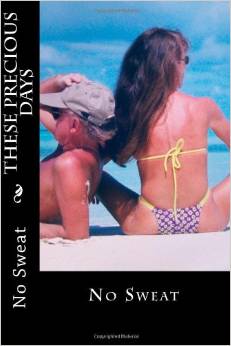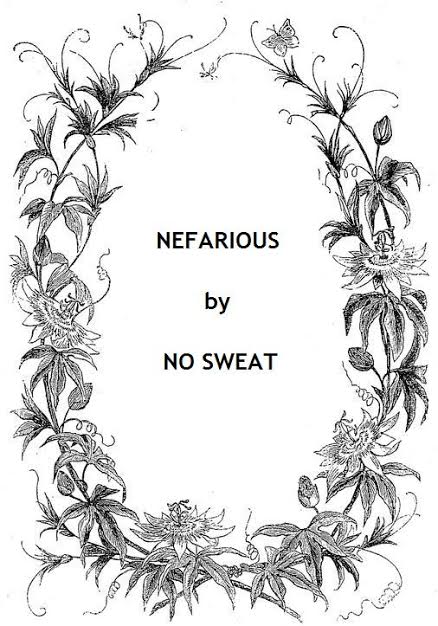Unlike his first novel, NEFARIOUS, or the more recent collected short stories, BLACK BLUEGRASS, Earl Lowell “Robbie” Robbins Jr. pens THESE PRECIOUS DAYS (TPD) as the noirish two-year diary of an eastern Kentucky writer’s (NO SWEAT) existential observations during a period of his waning youth. Like most significant writers of the American South, bleakness is pervasive throughout the work, even down to the pseudonyms given to those that haunt the primary social strata of his realm (e.g., Black Hole, mentor, Dark Star, best friend, Black Widow, beautiful temptress, etc.). The more luminous names given to his beloved (e.g., Sensi, Bright Eyes, True, etc.) are themselves shadowed by their juxtaposition to the troubled and often tragic family dynamic.
Set in the hills of eastern Kentucky, the town of Aoephh is spatially, temporally, and culturally isolated; however, the author selects events from his adventurous experiences to demonstrate that it perfectly represents the human condition in all places and in all time. In many respects Aoephh’s isolation allows Robbins to probe deeper into reality and truth than those typical self-aggrandizing reflections made from the safety of the cosmopolitan salons and cafes. During this 2-year period of time, 1981 to 1983, No Sweat (NS) begins to confront his past, present, and future through the struggles of his mentor, Black Hole (BH). BH is a West Point graduate who changed services to become a Cold War B-52 pilot, and finally Air Force Academy professor and intellectual who lived in what Eliot called the “shadow” that separates the idea and reality. Ultimately, human pain and darkness feed BH’s demons to demise. NS’s struggle, although never explicitly admitted, appears to be with the same demon attractions. Like BH, NS leaves Aoephh at every chance and had the physical and mental resources to stay away, but always returned. No one escapes Aoephh or life, but for death.
Although Robbins’ has undoubtedly been influenced by many of the great writers, he has crafted a writing style that is unique. He keeps the dialog short and focused, but manages to accurately capture the local dialect without distraction. His wordsmith distills and concentrates the essence of the characters and their circumstance. The senses are completely captured in a grand impressionistic manner, and the reader is led through the entire bandwidth of emotion, whether it is the outrageous comedy of a moonshine purchase in the mountains or the haunting sorrow of his mother’s illness. Whatever the emotion, TPD is an implicit and explicit reminder of the pain-of-living each of us endure, but to our detriment bury within the chaos and insanity of daily affairs. Robbins’ challenges the reader to examine the fragile restraints on their inner demons, and provides a short respite through this well-crafted diary to breathe the pheromones and boldly walk in their tender shadow.
Edward W. Woolery, Ph.D.
Engineering Seismology and Geophysics
University of Kentucky
Department of Earth and Environmental Sciences
101 Slone Research Building
Lexington, KY 40506-0053
Set in the hills of eastern Kentucky, the town of Aoephh is spatially, temporally, and culturally isolated; however, the author selects events from his adventurous experiences to demonstrate that it perfectly represents the human condition in all places and in all time. In many respects Aoephh’s isolation allows Robbins to probe deeper into reality and truth than those typical self-aggrandizing reflections made from the safety of the cosmopolitan salons and cafes. During this 2-year period of time, 1981 to 1983, No Sweat (NS) begins to confront his past, present, and future through the struggles of his mentor, Black Hole (BH). BH is a West Point graduate who changed services to become a Cold War B-52 pilot, and finally Air Force Academy professor and intellectual who lived in what Eliot called the “shadow” that separates the idea and reality. Ultimately, human pain and darkness feed BH’s demons to demise. NS’s struggle, although never explicitly admitted, appears to be with the same demon attractions. Like BH, NS leaves Aoephh at every chance and had the physical and mental resources to stay away, but always returned. No one escapes Aoephh or life, but for death.
Although Robbins’ has undoubtedly been influenced by many of the great writers, he has crafted a writing style that is unique. He keeps the dialog short and focused, but manages to accurately capture the local dialect without distraction. His wordsmith distills and concentrates the essence of the characters and their circumstance. The senses are completely captured in a grand impressionistic manner, and the reader is led through the entire bandwidth of emotion, whether it is the outrageous comedy of a moonshine purchase in the mountains or the haunting sorrow of his mother’s illness. Whatever the emotion, TPD is an implicit and explicit reminder of the pain-of-living each of us endure, but to our detriment bury within the chaos and insanity of daily affairs. Robbins’ challenges the reader to examine the fragile restraints on their inner demons, and provides a short respite through this well-crafted diary to breathe the pheromones and boldly walk in their tender shadow.
Edward W. Woolery, Ph.D.
Engineering Seismology and Geophysics
University of Kentucky
Department of Earth and Environmental Sciences
101 Slone Research Building
Lexington, KY 40506-0053


 RSS Feed
RSS Feed